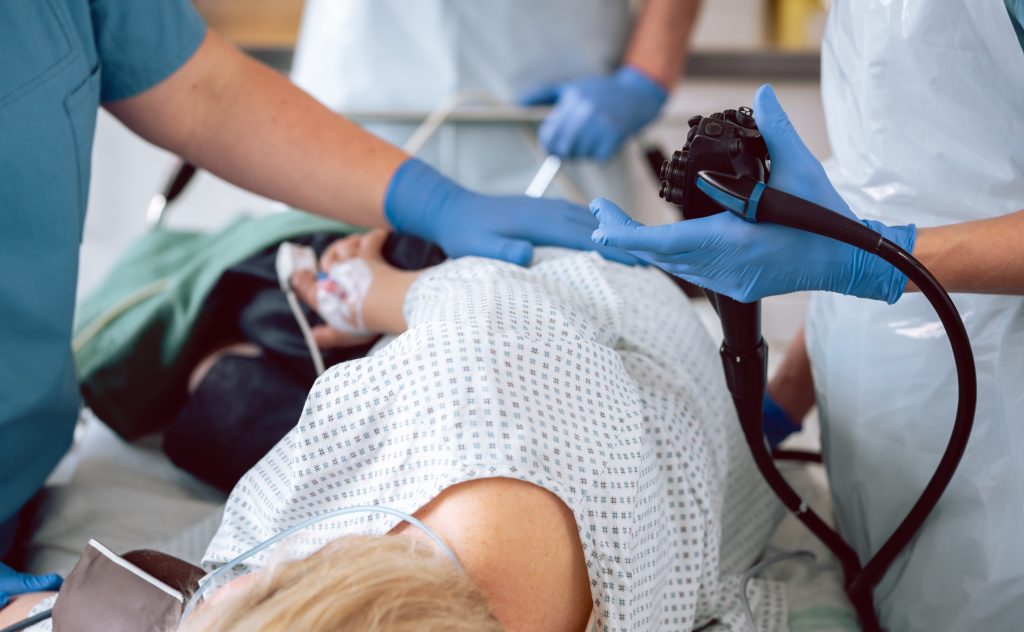Painless Colonoscopy

Painless colonoscopy is a procedure to examine the colon and rectum using a colonoscope, performed under sedation or anesthesia to ensure patient comfort. This procedure is a preferred option for individuals concerned about discomfort during a traditional colonoscopy.
Indications for Painless Colonoscopy
- Screening for colorectal cancer.
- Investigation of symptoms like:
- Chronic diarrhea or constipation.
- Rectal bleeding.
- Abdominal pain.
- Diagnosing conditions such as:
- Inflammatory bowel disease (e.g., Crohn’s disease, ulcerative colitis).
- Diverticulosis or polyps.
- Surveillance after colon surgery or polyp removal.
Procedure Steps
Pre-Procedure Preparation:
- Dietary Restrictions:
- Patients are advised to avoid solid food 24 hours before the procedure and consume only clear liquids.
- Bowel Cleansing:
- A laxative or bowel prep solution is provided to ensure the colon is completely clean.
- Fasting:
- No food or drink is allowed for 6–8 hours before the procedure.
- Dietary Restrictions:
Sedation or Anesthesia:
- A mild sedative or general anesthesia is administered through an intravenous (IV) line for a painless experience.
- The level of sedation is chosen based on patient preference and medical recommendations:
- Conscious sedation: The patient is relaxed but awake.
- Deep sedation or general anesthesia: The patient is fully asleep.
Insertion of the Colonoscope:
- The patient lies on their side, and the colonoscope, a thin flexible tube with a camera, is gently inserted through the anus into the rectum and colon.
- Air or carbon dioxide is introduced to expand the colon for better visibility.
Examination and Intervention:
- The doctor examines the colon lining for abnormalities like polyps, tumors, or inflammation.
- If needed, biopsies are taken, and small polyps are removed during the procedure.
Completion:
- The colonoscope is slowly withdrawn after the examination.
- The entire process typically takes 20–60 minutes.
Post-Procedure Care
Recovery:
- Patients are monitored in a recovery room until the sedative effects wear off.
- They may experience mild bloating or cramping, which usually resolves quickly.
- Driving and operating heavy machinery are prohibited for the rest of the day.
Results:
- Immediate findings may be discussed, and biopsy results are typically available in a few days.
Diet:
- Patients can usually resume their normal diet after the procedure, unless advised otherwise.
Dr. Masfique Ahmed Bhuiyan
- MBBS (DMC), BCS (Health)
- FCPS (Surgery), F.A.C.S, F.M.A.S
- Assistant Professor
- Surgical Gastroenterology
- Laparoscopic and Intervention Endoscopic Surgeon
- Dhaka Medical College Hospital, Dhaka.
Opening Hours
- Eden Multi-Care Hospital (Pvt) Ltd
- Visiting hours: Saturday, Monday and Tuesday from 3 pm to 8 pm.

